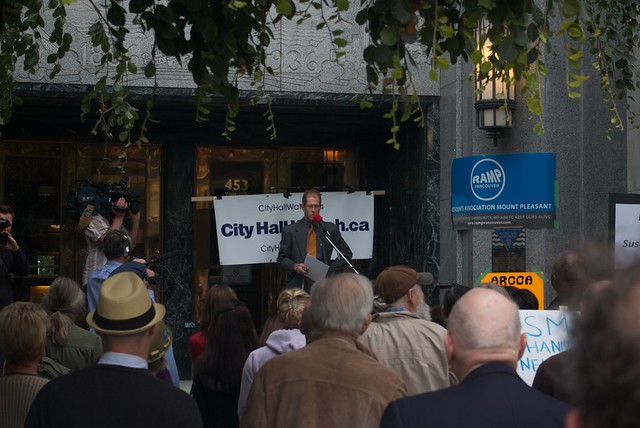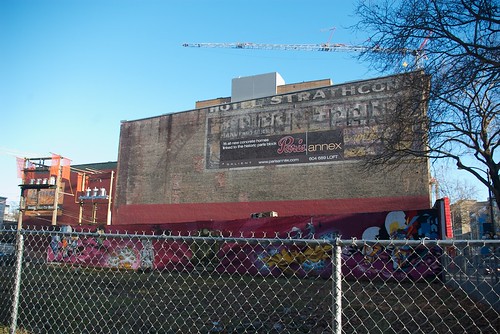The Mainlander’s Sean Antrim sat down with their Mayoral candidate Randy Helten of Neighbourhoods for a Sustainable Vancouver (NSV) to talk about affordability, accountability, the arts, and Vancouver’s future. It is a tall order for a political party that does not receive corporate and developer donations to get candidates elected. NSV has been fighting an up-hill battle.
Sean Antrim: What amount of development do we need in Vancouver right now? And the reason that I’m asking this question is because many people, and the mainstream press, have criticized Neighbourhoods for a Sustainable Vancouver as being NIMBY-based. A lot of journalists have been around for a while, and in the 1990s with Gordon Campbell, NIMBY-ism was quite a problem.
Randy Helten: To tell you the truth, I don’t know the answer. In fact, I don’t think anyone knows the answer. The people who know the answer are concealing the answer. Because the City has removed from public access numbers that show the current zoning capacity. It used to be up and available, but it’s gone now. My understanding is that Professor Patrick Condon at UBC has done some studies, and he’s saying that for construction within the current zoning, the capacity for additional population density is enough for decades into the future. Construction could happen without any rezoning, to fill all of the incoming population.
The City has these numbers, and in January of this year [COPE Councilor] Ellen Woodsworth put forward a motion that was passed, according to which the planning department was supposed to release the numbers of zoning capacity to council some time in February. It’s off the map. Despite repeated requests there’s been no response out of the planning department. So no one knows the answer publicly. The information is concealed. My suspicion is that if you take the West End, for example, I think in the current zoning, without rezoning, we could accommodate another 5,000 people or so. That’s just a sense, because I know the areas that are zoned right now for six stories that are currently two stories. If you take the average of all that and you look at a long term thirty-year plan or a hundred-year plan, and look at the land area in the West End and long term population goals — steady growth, not too extreme, not too rapid — the West End could accommodate several thousand more people.
Sean Antrim: That’s the way most cities do rezoning — blanket rezoning — which is doing an entire neighbourhood at a time. Why do you think we have so many spot rezonings in Vancouver?
Randy Helten: My understanding of the dynamics is that a spot rezoning allows exceptions to happen within the existing zoning. In many cases it offers huge returns to the owner of those specific spots. If you go to the old adage “follow the money” and look at who’s making campaign contributions to our elected officials, it makes sense. They’re making the campaign contributions, the officials get into power, and they have control over land use decisions. They’re supposed to regulate the land on behalf of the entire public and balance all the interests of all of the stakeholders. Both Vision and the NPA as organizations are incapable of avoiding undue influence from that private money, and that’s what we’re seeing as the results of their decisions.




